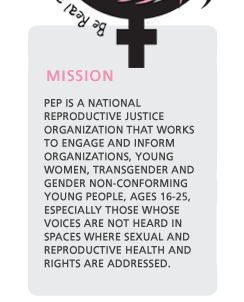| |
Home » Get the Facts » Important Supreme Court Cases
| Gonzales v. Carhart
In 2003, President Bush signed a federal abortion ban into law. Planned Parenthood, the Center for Reproductive Rights, the National Abortion Federation and the American Civil Liberties Union challenged it in federal district courts around the country. |
| Stenberg v. Carhart
Dr. Carhart stated that the Nebraska law banning so-called �partial-birth abortion� was unconstitutional, based on the �undue burden� test established in Planned Parenthood v. Casey. |
| Now v. Scheidler
NOW wanted monetary compensation and laws to protect abortion clinics from violence. They referred to the Racketeer Influenced and Corrupt Organizations (RICO) Act and the Hobbs Act, both meant to protect citizens from extortion and violent interference with their businesses |
| Planned Parenthood of Southeastern Pennsylvania v. Casey
Planned Parenthood challenged sections of the state�s Abortion Control Act of 1982.These provisions included spousal consent, parental notification, a 24-hour waiting period requirement and �informed consent� � meaning, doctors were required to inform women of the possible complications of the abortion procedure. |
| Rust v. Sullivan
Rust and several family planning providers challenged President Ronald Reagan�s "gag rule.Under this new rule, clinic staff could not discuss all of the options available to women facing unintended pregnancies, particularly abortion; they could only refer them for prenatal care. |
| Hodgson v. Minnesota
Dr. Hodgson challenged a Minnesota state law that required a minor to notify both biological parents before having an abortion.It made no exception for parents who were divorced, who had not married, or who were unknown to their daughters. |
| Webster v. Reproductive Health Services
Reproductive health professionals challenged a state law that included harsh restrictions on reproductive services. The law forbade the use of public facilities for all abortions except those necessary to save a woman's life and required physicians to perform tests to determine the viability of fetuses after 20 weeks of pregnancy. |
| Bowen v. Kendrick
Kendrick and his group challenged on the fairness of the Adolescent Family Life Act. This act authorized the use of federal money to teach abstinence-only sex education to teenagers. It also allowed federal money to go to religious organizations.
|
| City of Akron v. Akron Center for Reproductive Health
The Akron Center for RHS challenged sections of an ordinance restricting abortion, which: required minors under 15 to obtain parental or judicial consent for an abortion; required physicians to give women information designed to dissuade them from having abortions; imposed a 24-hour waiting period after the signing of the consent form; and required that all second-trimester abortions be performed in a hospital.
|
| Harris v. McRae
McRae challenged the Hyde Amendment of 1976, which prohibits the federal Medicaid funding of abortions not necessary to preserve the woman�s life. |
| Bellotti v. Baird
Baird challenged a statute requiring women under 18 to obtain parental or judicial consent before having an abortion. |
| Maher v. Roe
Several low-income women challenged a Connecticut state regulation that banned public funding for abortions that were not �medically necessary.� |
| Planned Parenthood of Central Missouri v. Danforth
Planned Parenthood challenged a statute that would force a married woman to obtain her husband�s approval before getting an abortion. Under this law, minors would also be required to get parental consent. |
| Roe v. Wade
The most significant case for abortion rights, Roe v. Wade challenged a Texas law that prohibited all abortions, except those needed to save a woman�s life. Jan Roe was an alias for Norma McCorvey, a pregnant woman charged with having an abortion. |
| Eisenstadt v. Baird
William Baird gave away vaginal foam to a woman after his lecture on birth control and over-population at Boston University. Sherriff Eisenstadt brought him to court and Baird was charged with a felony. Massachusetts law only allowed married couples to obtain contraceptives from registered doctors or pharmacists; Baird was neither. |
| United States v. Vuitch
This was the first case strictly about abortion to reach the Supreme Court. Vuitch, a licensed physician, was charged with performing abortions in Washington, D.C. This violated a law that only allowed abortions to preserve a woman's life or health. |
| Griswold v. Connecticut
In 1965, Connecticut was one of the only states that still had laws making birth control illegal. In this case, Griswold was charged with giving out birth control to married couples.
|
Share on Facebook
|
|
|







